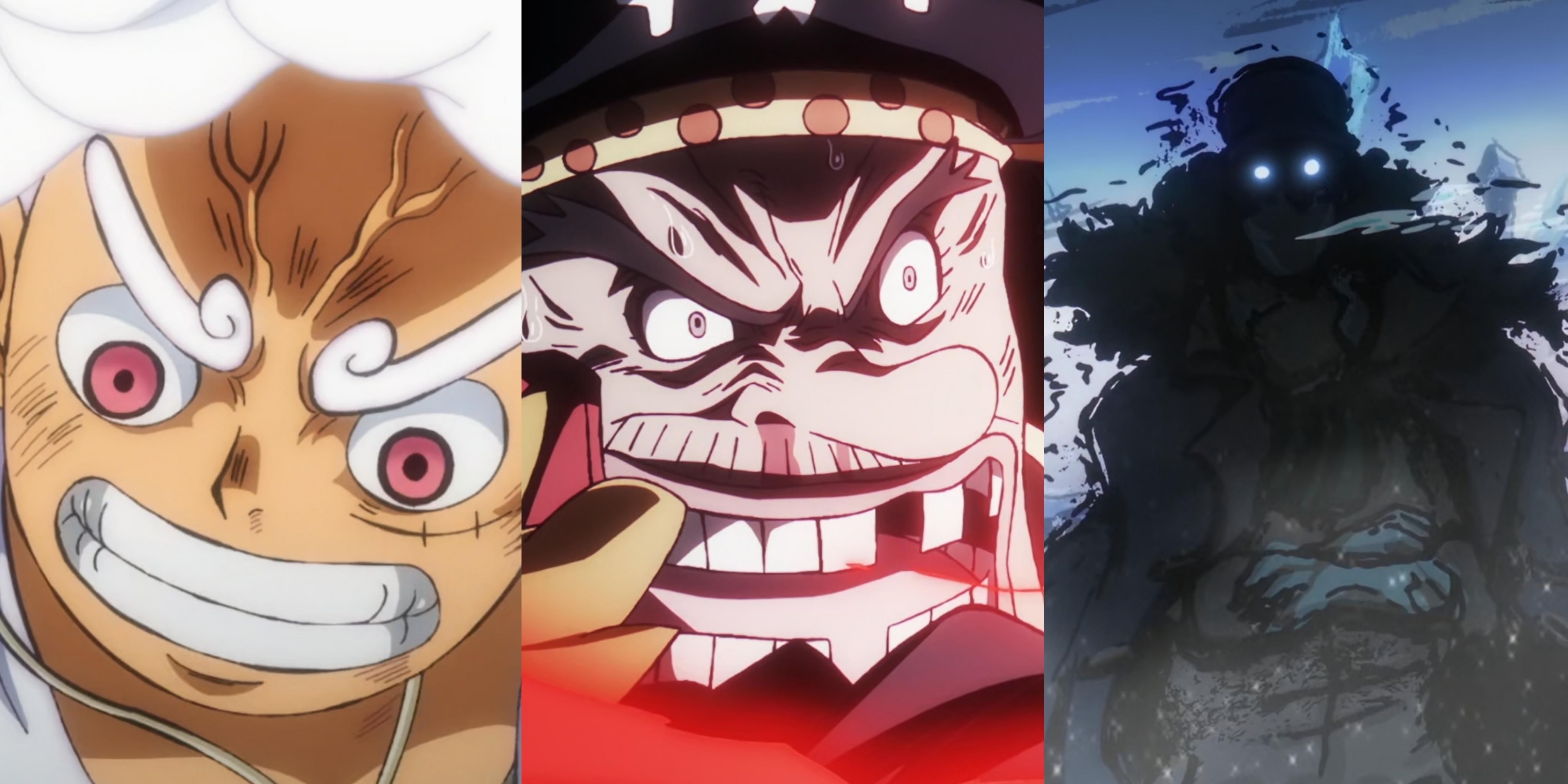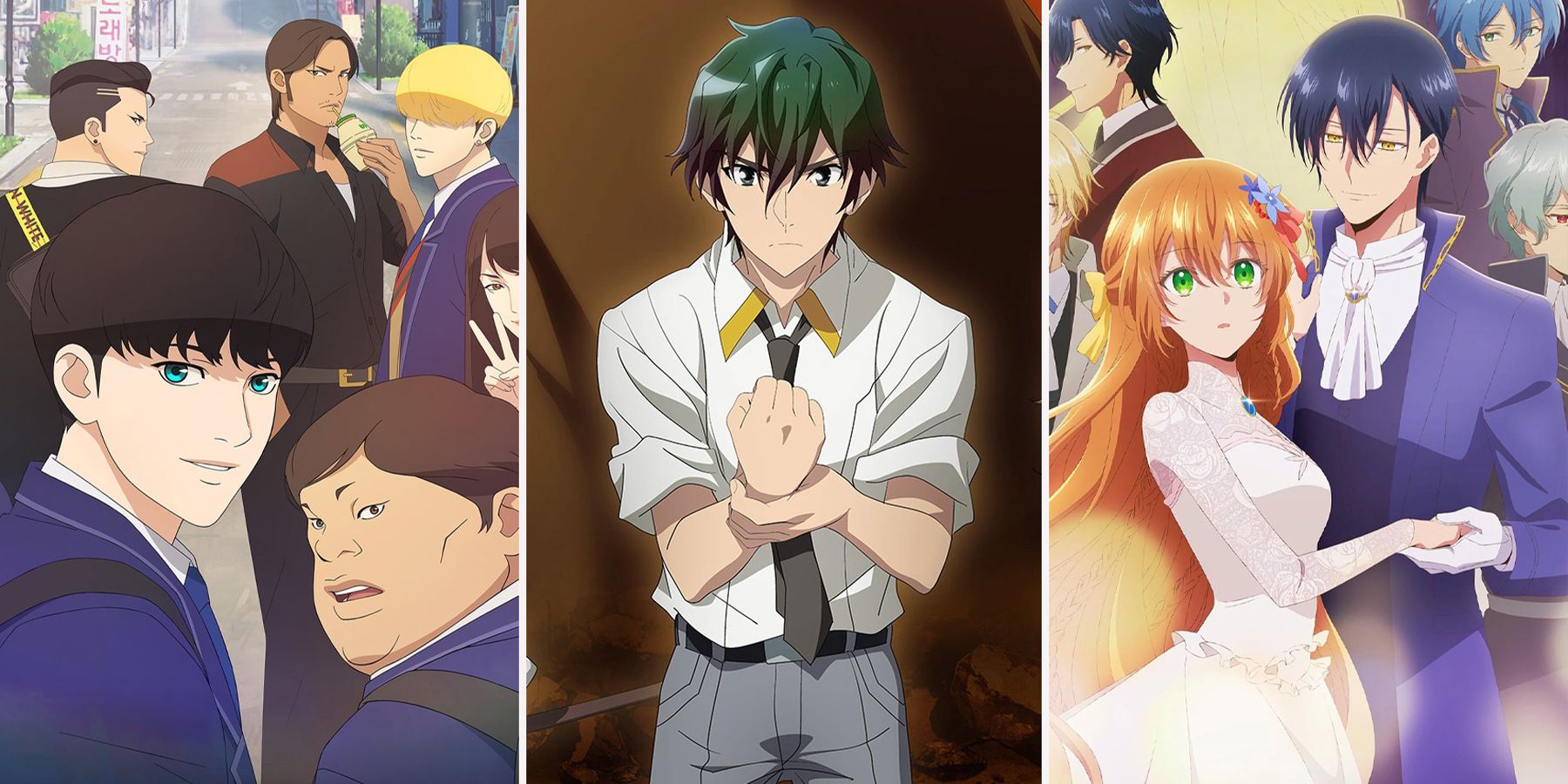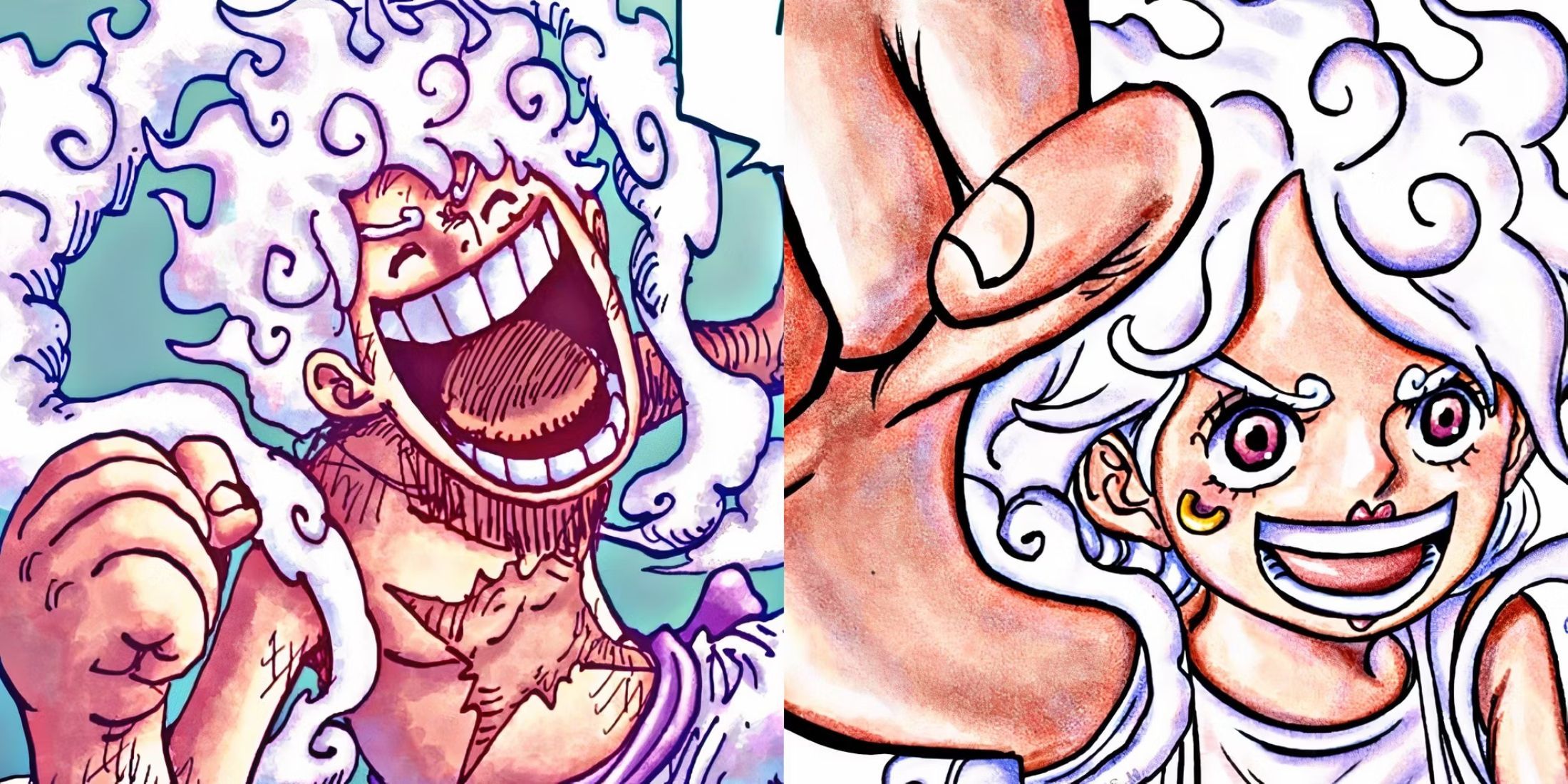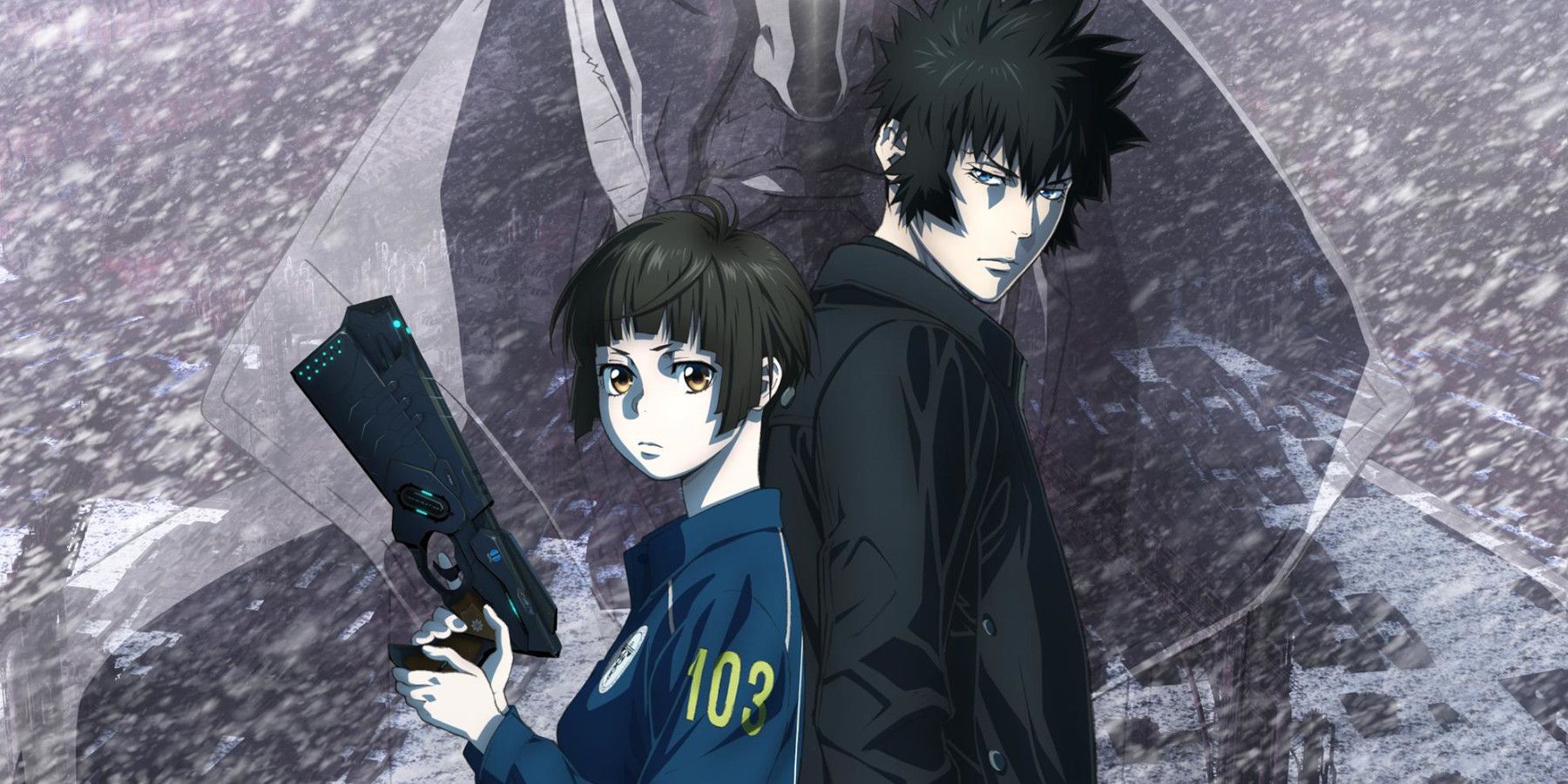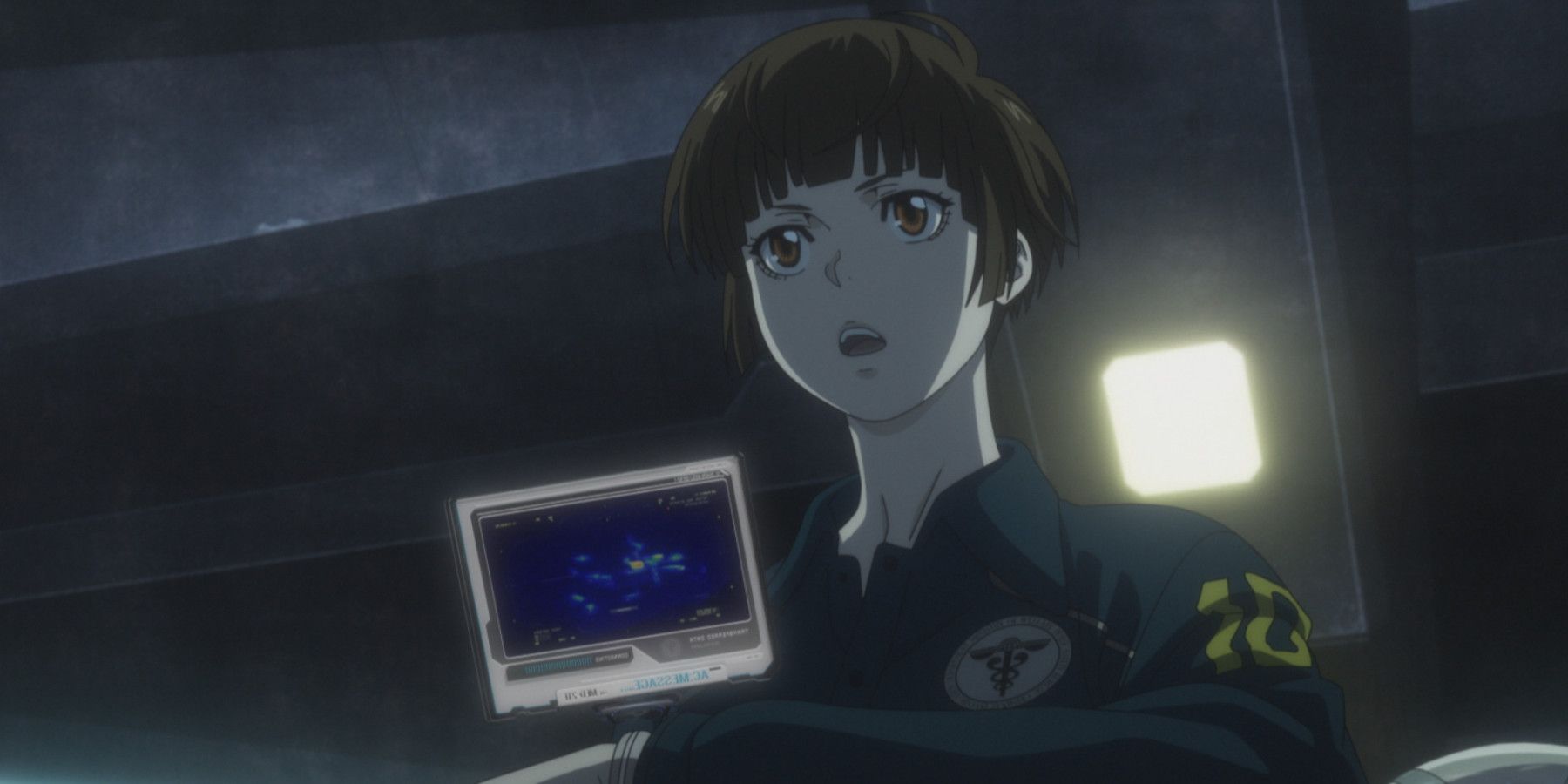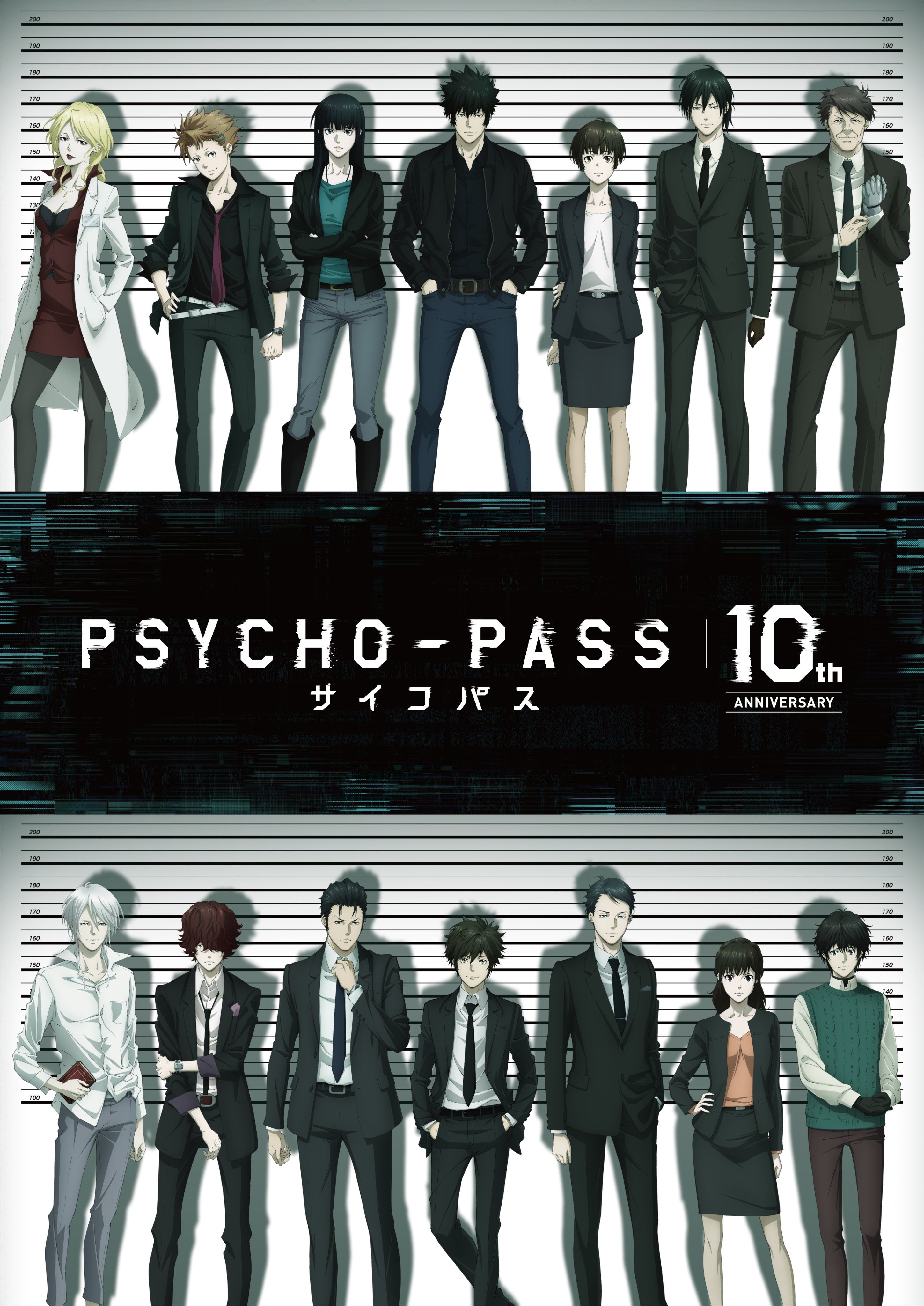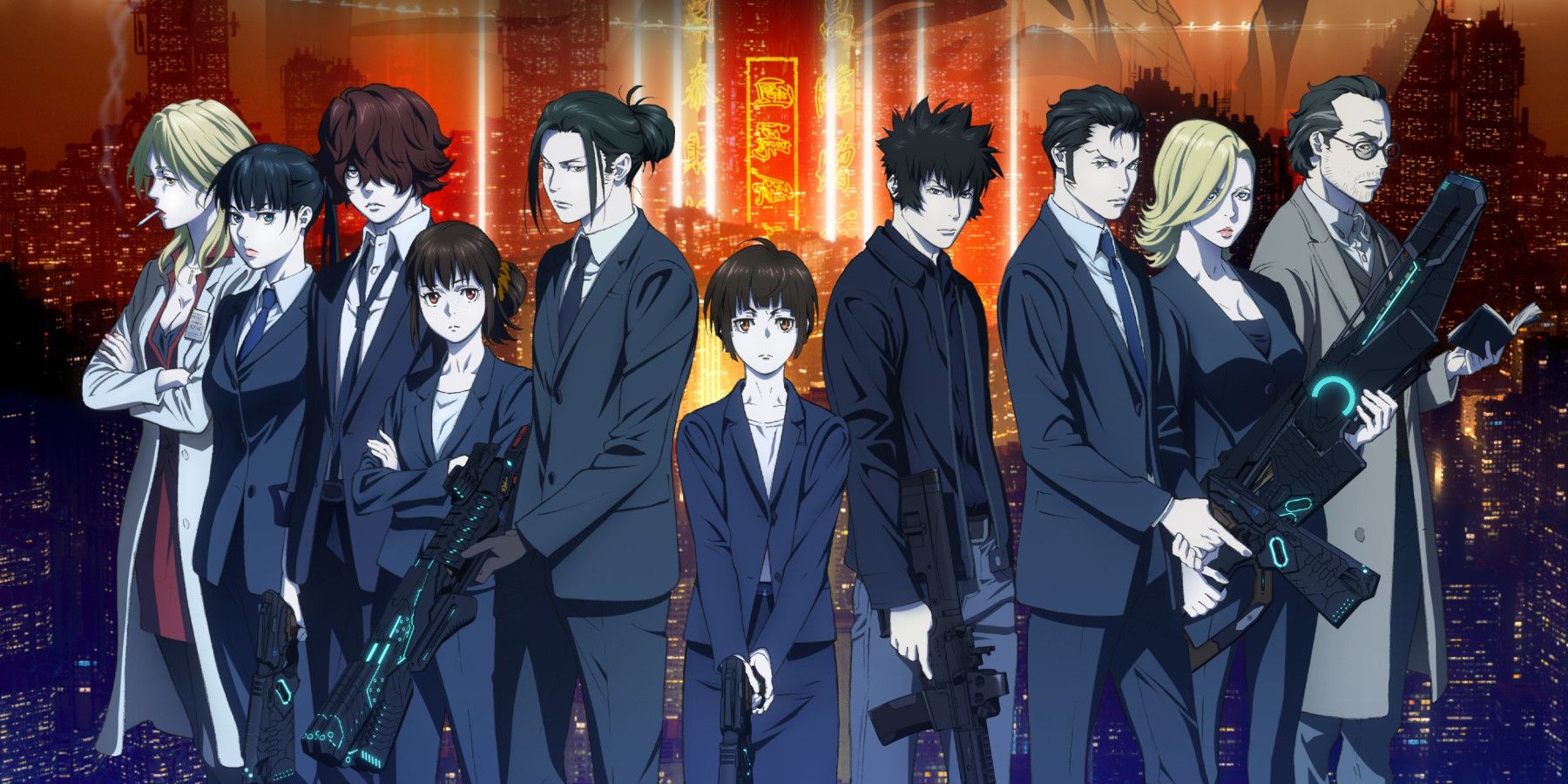Warning: This film does NOT contain major spoilers for Psycho-Pass Providence, but may feature minor spoilers for the rest of the series.
There is a sense that Psycho-Pass is not only celebrating its own series but Production I.G.'s resume of sci-fi classics as well. Within this film was the spirit of Ghost in the Shell and Patlabor, but is Psycho-Pass Providence more than a loving pastiche of a studio's colored past?
Psycho-Pass Providence is directed by Naoyoshi Shiotani and written by Tow Ubukata and Makoto Fukami, celebrating the franchise's 10th anniversary while filling in the missing link in the story. The film explores the gap between the Sinners of the System films and Season 3, answering longstanding questions and serving as a culmination of Akane Tsunemori's story.
The Hunt For The Stronskaya Papers
The year is 2118 and Japan is about to make a monumental decision about its future. Its government is considering the abolition of the judiciary system - of law itself - in favor of trusting the Sibyl System completely. Akane Tsunemori is vehemently opposed, considering the law to be fundamental and believing that Sibyl isn't so perfect that we can rely solely on it.
Suddenly, she receives a report of a vessel off the coast and a dead professor aboard named Milicia Stronskaya, who created a model projecting the effect that Sibyl would have on the world. The revelations within could be Japan's undoing and now Akane's team must work with the Foreign Ministry to find the papers before a rogue militia, known as the Peacebreakers, do.
Amidst all this, Akane is reunited with her old friend Shinya Kogami, now an agent with the Ministry of Foreign Affairs's Suppressing Action Department (SAD). Despite all that is unspoken between them, they'll need to work together to prevent disaster. Of course, those who have seen Psycho-Pass 3 already have some idea of where that will lead.
Thankfully, only a small picture. Fans know that most of the original main cast is transferred, that Atsushi Shindo commits suicide, and that Akane Tsunemori is in prison, but the bigger context is missing. The film answers lingering questions adeptly, and no doubt will make Season 3 better upon rewatch, but the audience has to care about those answers in the first place.
The Shadow Looming Over Psycho-Pass
It is very hard for Psycho-Pass to hit the way it used to, and this is not just because Gen Urobuchi is no longer writing it. It's because the premise and its core visceral appeal seem designed to have a limited shelf life. One can only show people blown up by a Dominator so many times before it loses its appeal.
When Psycho-Pass expands, it looks beyond the borders of Japan but then has no choice but to become an action series, with guns blazing and martial arts aplenty. Yet, there's still this wariness to stray too far; the series can't abandon Sibyl - abandon Japan. So the story has to progressively bring the war to the home front. Hues and the Dominators that judge them are everything, so bad guys have to always find ways to circumvent them.
After a while, that can get old, same with the excuses to give the enemies guns, just so that a shootout can occur, or so Kogami can fight someone while his theme plays in the background. These things were exciting in Season 1 because the world was new to viewers, and by the end of that beginning, the audience knew everything - or at least the most important thing.
Sibyl is a bunch of brains in jars joined by AI to help guide humanity. The moral dilemmas that arise from that reveal are what make the story so impactful. Continuing Psycho-Pass in a meaningful way is hard. Psycho-Pass 3 was supposed to be a return to form and in a lot of ways that go underappreciated, it succeeded, even if it was far from perfect. Does Providence have anything special to say?
Why We Need The Law
In a weird way, Providence addresses its weaknesses by embracing them, though likely unintentionally. This film goes out of its way to avoid using the Dominator for a majority of the runtime, finding justification for gunfights, fist fights, and knife fights. Sometimes it looks awesome but other times it can look slow, and the sound design feels like it's trying to trick the ear into thinking the hits are more impactful than they are animated.
But something changes before the climax. Through a series of shady dealings behind the scenes in a mounting conspiracy, Akane and co. are barred from finishing their investigation. Then, just like Section 9 from Ghost in the Shellor Section 2 from Patlabor, they decide to finish things themselves, using the rule of law. That means Dominators, and it means taking away the loopholes the villains are reliant on.
But with that comes the connotation of fanservice; a big movie climax with a few extra steps to make it feel like the first season. Seen that way, it might be a bit too grand to be anything like Season 1. But it more often works because Providence's conflict is entwined rather wonderfully with the themes, which exemplify why Akane Tsunemori is the heart and soul of this series.
It's been too long since Akane was a protagonist in a series that truly would be nothing without her. She went from a naive newcomer to a tragic heroine who has given everything to fighting for justice within a system she disagrees with, in the hopes of making it better. This film endeavors to challenge her to her core and effectively close the book on her story. If there is anything that Providence needed to get right, it was her, and they succeeded beautifully.
The ending, what it meant, and the reveal of how Akane ended up where she was in Season 3, was stunning in a way that the series hasn't been since Season 1. Psycho-Pass has plenty of shocking moments, usually in the form of its violence, but the ending of Providence felt like a culmination of the entire series. It was worth it for the ending alone, and especially Kate Oxley's emotional performance returning as Akane.
Unsurprisingly, the returning cast does a great job. Jouji Saiga's importance to the plot was unexpected, but Michael Federico's performance always adds some extra class to the scene, so it was much appreciated. On the flip side, Kai Mikhaylov could have also been developed more, having such a strong connection to the main characters of Psycho-Pass 3. His few scenes were effective, but it never feels like the audience gets to know him fully.
Plenty will probably say they wished for more from Akane and Kogami's reunion, but given how well-written their relationship was in the first season, it's unlikely anything could have fully satisfied the fans. Three seasons, three short films, and now two feature films, yet it feels like a lot of time has been wasted to get to this point - that's probably the biggest complaint.
Season 2's failure hurt this franchise severely but if Psycho-Pass Providence proved anything, it's that this story still has life in it. The writers just need to remember what made this series great in the first place. Not just a love of psychology and philosophy, nor advanced technology, but a message about justice that feels powerful and prescient.
